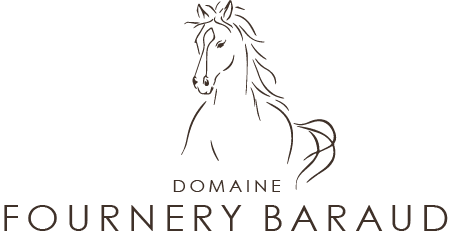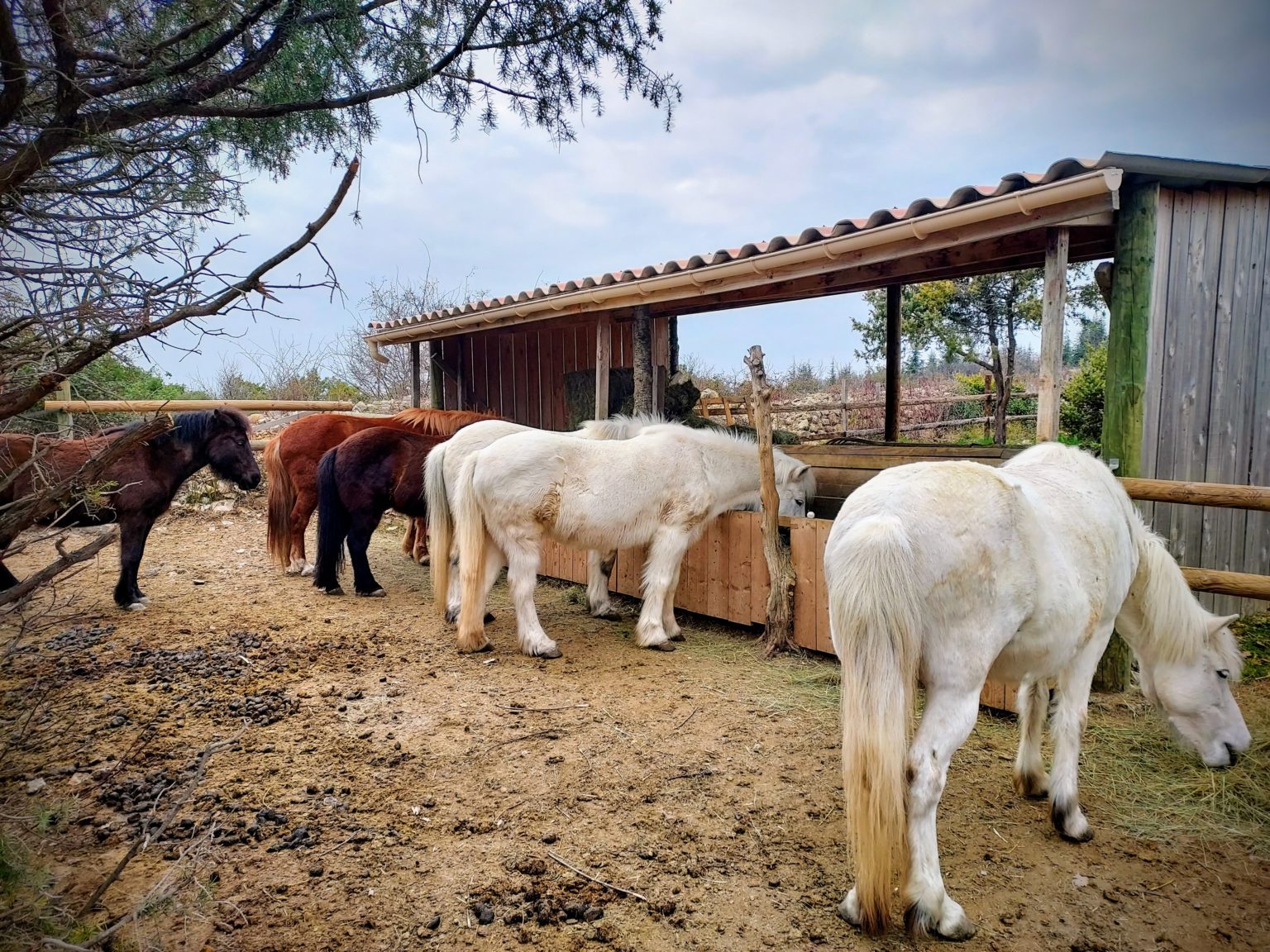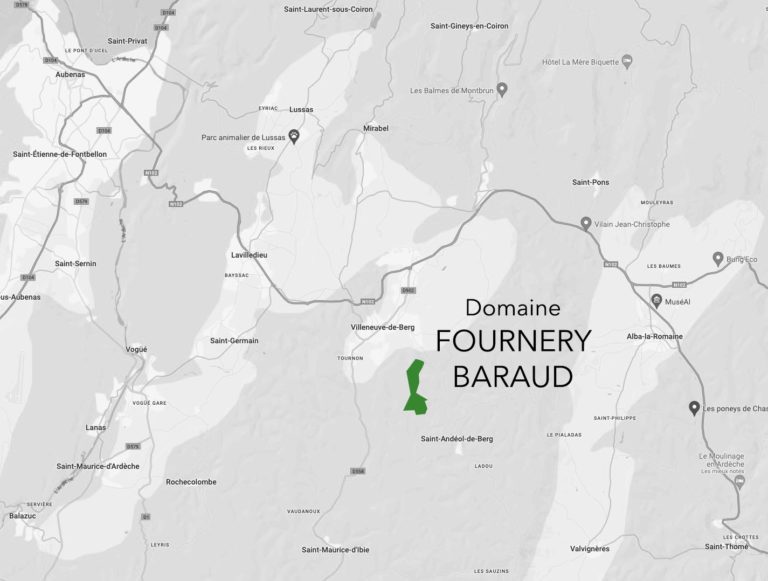A balanced herd of 11 Icelandic horses in semi-freedom on 40 ha of land
I have lived with horses in a herd for almost 20 years. Living alongside them is a true initiatory journey of healing and development of the being: they teach us the connection to oneself and to all living things to move towards harmony, towards balance, the “right” posture. Very inspiring, they invite us without judgment to be fully ourselves, to anchor ourselves, to listen to our body and our heart, to understand and manage our emotions (self-regulation), to learn to calm the emotions of others (co-regulation), to reconnect with our intuition, to clearly set our limits and to be attentive to those of others, to accept and love all parts of ourselves…
They teach us all forms of non-verbal language, autonomy, self-knowledge, fulfillment, authenticity, creativity, spirituality, and above all how to "start grazing again" and enjoy life rather than ruminating: to find ourselves, calm and connected to our resources.
Our Icelandic horses
Despite its small size (between 1.30 and 1.45 m), the Icelandic is a real horse. Short, stocky and very muscular, it is also very hardy and is content with meager and scarce food.
The Icelandic pony descends from Norwegian breeds and various Celtic pony lines introduced to the island by Scandinavian peoples, particularly Viking settlers. Indeed, Iceland has never had a native pony.
In the late 19th century, Icelandic horses were exported to work in English and Polish mines.
Imported to Iceland by the Norman Vikings who invaded the island from the 9th century AD, these horses are today a unique example of genetic purity: in fact, since 930, a law has prohibited the importation of horses into the island. Only their export is authorized. There are about 72,000 of them in Iceland today.
This vigorous, courageous and extremely gentle little horse is today known throughout the world for its ancient gaits: the amble and the tölt, which it possesses in addition to the three gaits of the walk, the trot and the gallop.
-> The 5 gaits of Icelandic horses
The amble is a regular and rapid gait in which the horse moves the lateral bipeds in turn.
The tolt is the Icelandic reference gait, it is a kind of very fast four-beat step, during which the horse strongly raises its limbs. The horse always has one or two feet on the ground. There is no suspension time: this permanent support results in incomparable comfort for the rider. It is a clear, rhythmic gait, in four equal beats. At the tölt, an Icelandic can cover long distances and reach speeds of 30 to 40 km/h.
-> tölt demonstration
Some Icelandic horses exhibit tölt spontaneously even when free: they are then called "natural tölters". Most Icelandic horses trot freely, but tölt easily under saddle: they are then called "four-gaited". Others behave like "four-gaited", but also have the amble naturally: they are then called "five-gaited". An Icelandic horse is a breed of horse that has lived in Iceland since the 800s.
Icelanders are very proud of their little horses and speak of them with love, among other things in their sagas. They do not like at all that their horses are taxed as ponies.
Connections : French Icelandic Horse Federation
Laplaud Igla
Nicknamed Gribouille.
Five gaits: it has magnificent, very elevated gaits.
Igla foaled for the first time in 2005: her filly Raena (Aegidienberg, daughter of Nanito) was born on July 15, 2005. She foaled again in 2008: her second filly Unna (3/4 Icelandic 1/4 Peruvian Paso, daughter of Rico de Fournery) was born from an unplanned mating on June 16, 2008, she was covered this year by Neisti frá Hávarsstödum (stallion of the Schlossmatt breeding)
| born) : | May 08, 1996 |
| age : | 27 years 11 months |
| size : | 135cm |
| dress : | Dapple gray |
Karie des Sources
A natural toiler, this mare is incomparably comfortable when she is determined to work and her rider approaches her gently.
She has foaled four times: Rico (Aegidienberg, son of Nanito) in 2005, Taku (pure-bred Icelandic, son of Ljufur du Massif) in 2007, Askur (pure-bred Icelandic, son of Nagur du Massif) in 2010, Brùnka (Filly Purebred Icelandic, daughter of Nagur du Massif), she is expecting a foal in 2013.
Unna de Fournery
3/4 Icelandic 1/4 Peruvian Paso mare, born at Mas de Fournery on June 16, 2008. Daughter of Rico de Fournery and Igla de Laplaud. Unna means "to love" in Icelandic. Left Brain filly – Introvert, sensitive but very strong-willed when given responsibilities.
Askur de Fournery
Askur means "ash tree"
| born) : | May 11, 2010 |
| age : | 13 years 11 months |
| mother : | Karie des Sources |
| father : | Naggur of the Massif |
| dress : | dark bay |
| signs: | on your mind |
Brunka de Fournery
Brunka means "Black-Brown". Daughter of Karie of the Sources and Naggur of the Massif.
| born) : | May 18, 2011 |
| age : | 12 years 11 months |
| mother : | Karie des Sources |
| father : | Naggur of the Massif |
| dress : | Copper bay |
| signs: | On your mind |






